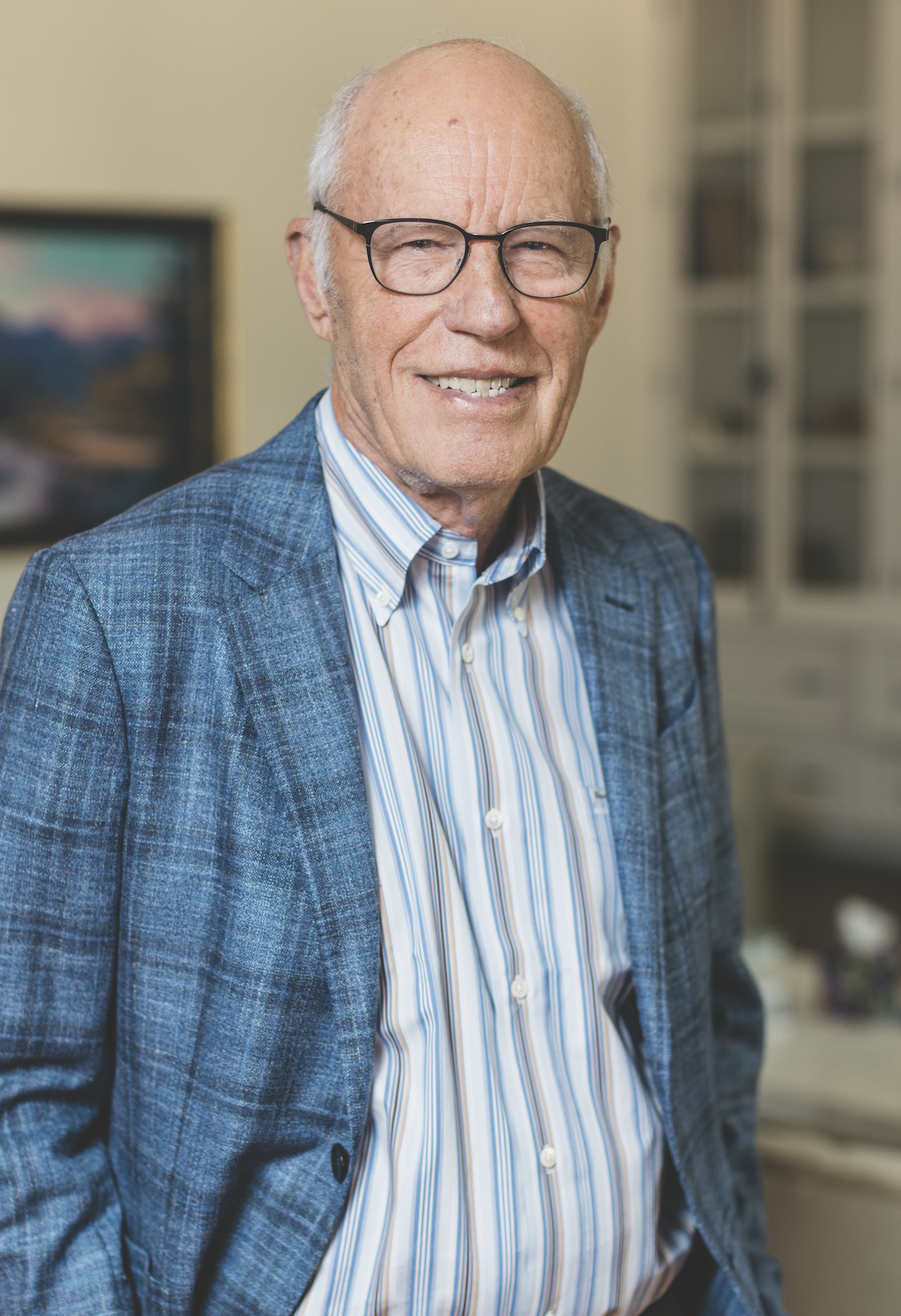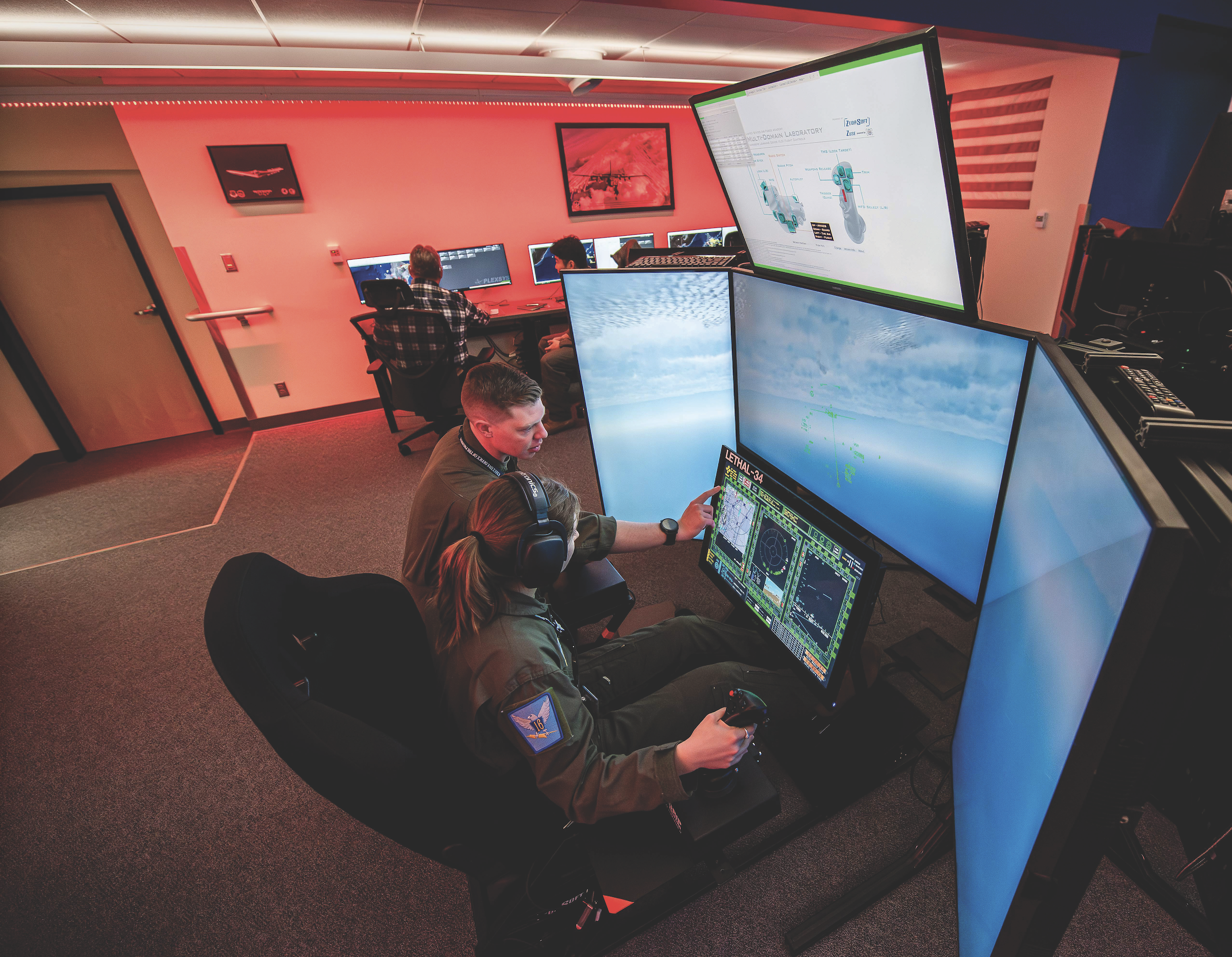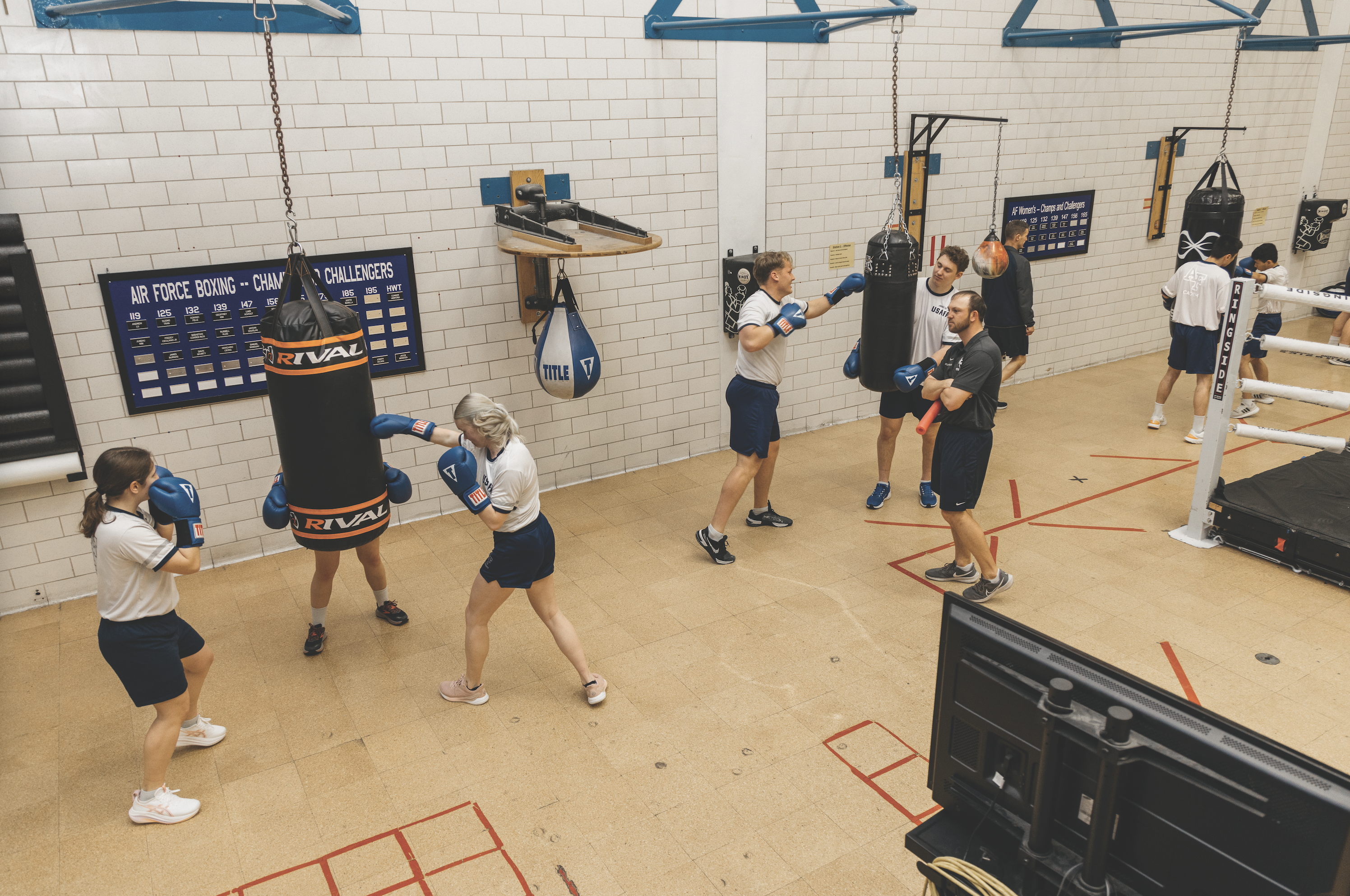Checkpoints: Future Planning
IFC gift to support years of continued discovery
As a founder of the U.S. Air Force Academy’s Institute for Future Conflict, John Fox ’63 has helped fund positions that provide unique expertise that otherwise may not be available.

One IFC fellow supported by Fox brought a deep knowledge of the People’s Republic of China. Another provided perspective on Middle East warfare and politics. These additions to the curriculum gave initial support that the Academy needed to address threats identified in the 2018 National Defense Strategy. “It talks about the increasingly complex security environment and rapid technological change in this environment,” Fox says of the NDS. “It goes on to say that there can’t be any complacency. We must make difficult choices and prioritize what is most important to field a lethal, resilient and rapidly adapting Joint Force. And of course, that was a very forward-looking statement, because, as we’ve seen since 2018, the rise of the problems in the Middle East, we’ve had the war in Ukraine, and we have the East Asia issues with China and their attempts to intimidate Taiwan. It just seems like the threat environment has become more acute ever since then.”
The continued need for cadets to be prepared for uncertain times combined with the Academy’s priority of graduating officers ready on Day 1 led Fox to consider a larger gift that could fund IFC operations for several years. Earlier this year, Fox and his wife, Sandy, created the John ’63 and Sandy Fox IFC Operating Fund with a $10 million gift to support the IFC. “My hope is that it will be a constantly evolving entity at the Academy that’s looking forward to searching the threats facing us. How are certain technologies being used to better defend our country?” Fox asks. “In other words, it’s not a static sort of thing, but it’s evolving as we learn more about how our adversaries are targeting us. I hope that there’s always this curiosity and search into the unknown.”

A NEW FUTURE CONFLICT MINOR
Part of that search into the unknown could be facilitated through a new future conflict minor approved by the Academy on Aug. 8. The Fox IFC Operating Fund will provide salaries for three fellows hired to teach the courses within the minor. The four identified courses include Strategic Competition, Adversary Doctrine, Fiction and Future Conflict, and the Problems in Strategy and Tactics capstone, which includes classified instruction. A fifth course for the minor is an elective that cadets can choose from across the curriculum.
The Fox funds will also pay for travel and research for the fellows and cadets in the courses. During the minor’s development, about 30 cadets completed one or more of the courses during the 2024-25 academic year. Fox met with the cadets at graduation time. “They were so enthusiastic. I think a couple of them said, ‘This is the best course we’ve ever taken at the Air Force Academy,’” Fox says. “It helped them understand what they were going to be facing after graduation. They had a broader concept of what the Air Force’s challenges are and how they were going to fit into those challenges and respond as warfighters. We need to have the capability to project power so that our adversaries won’t take us on.” IFC leaders anticipate at least 10 cadets will have completed the future conflict minor by the end of the 2025-26 academic year.

ADDITIONAL PRIORITIES
The Institute for Future Conflict is now part of A5 at headquarters USAFA — Strategic Plans, Policy and Requirements. Designated as A5X, the IFC is the organization looking at future concepts for the superintendent, allowing it to be more easily incorporated across all major units of the Academy. For example, the IFC will be more involved with support of military training this academic year and in the future.
Over the past year, the Academy has expanded its warfighter and training exercises. The Cadet Wing participated in two culminating exercises to help develop resilience, adaptability and combat readiness. The fall CULEX, which replaced the Commandant’s Challenge and Commandant’s Training Day, will continue in October 2025. The Academy announced earlier this year that the spring CULEX would eventually be known as The Crucible. The event evaluates cadet proficiency in Ready Airman Training skills. The Crucible is on the academic calendar for April 15- 18, 2026, serving as the mechanism for Recognition and Promotion. Both exercises will benefit from the Fox IFC Operating Fund. The fund also will help pay for upgrades to the Multi-Domain Lab, a 7,000-squarefoot facility in Fairchild Hall. The lab, created in 2021, is a comprehensive, integrated simulated battle space that links multiple participant perspectives.
The combatives and water survival programs within the Department of Athletics will be able to expand as well. “The Academy’s Institute for Future Conflict is vital to sustain and advance our national security objectives in the 21st century through curriculum, research, outreach and the forging of our warrior leaders,” says Lt. Gen. Tony Bauernfeind ’91, U.S. Air Force Academy superintendent. “The Long Blue Line continues to give back to the Academy, and we appreciate the generosity that allows our staff to prepare our cadets for the great power conflict they will face in the years to come.”

THE CHANGING NATURE OF WARFIGHTING

When Fox showed up at the Air Force Academy in the fall 1959, it was 14 years after the end of World War II and only a few years after the Korean War. “It seemed like the training was more focused on a kind of single set of tactics and operations; whereas today, these cadets are facing multiple areas of conflict, multiple technologies that they have to become aware of and learn about,” Fox says. “Back in the ’60s, space wasn’t thought to be a contested domain. It’s also another thing that our cadets have to learn about in terms of multi-domain operations. I think the IFC is a way for them to grasp some of the opportunities they have in the Air Force or Space Force and some of the possible ways they can use their talents.”
After graduating from the Academy with an engineering degree, Fox served as a T-38 instructor pilot and taught applied aerodynamics as a classroom instructor, but he wasn’t able to see himself as a longterm Air Force officer. After earning an MBA in 1972, Fox eventually found his calling in the oil and gas industry. Fox was one of the original founding directors of the Air Force Academy Foundation and was honored as a 2017 Distinguished Graduate of the Academy. He was instrumental in establishing the IFC, but he has been part of a larger group of graduates who have seen the importance of the institute and fostered its growth. “I want to emphasize the team approach to this. I’ve been fortunate enough to have the resources to help with this effort. But the real heavy work has been done by Dr. Paul Kaminski ’64, Gen. (Ret.) Gregory “Speedy” Martin ’70, Lt. Gen. (Ret.) Erv Rokke ’62, Maj. Gen. (Ret.) Dave Scott ’78 and IFC Director Lt. Gen. (Ret.) BJ Shwedo ’87. The superintendent, Lt. Gen. Bauernfeind, has also been a constant source of support and leadership. [These are] the people who inspired me. It’s a team. It’s not one person here,” Fox says. Dr. Kaminski, Gen. Martin and Gen. Rokke all helped with establishing and coordinating the IFC in its early days. Then-Superintendent Lt. Gen. (Ret.) Richard Clark ’86 selected Gen. Shwedo as the institute’s first director in 2021. “My wife and I have always been astounded by the willingness of these very capable people to dive in, to have meetings to discuss it, to go through the process of trying to formulate a plan,” Fox says. “We’re just constantly inspired by the dedication of the people we’ve met with, the IFC, and then the people that helped formulate it in the first place.”
Leaders at the U.S. Air Force Academy Association & Foundation, which encompasses the joint mission of the Association of Graduates and the Air Force Academy Foundation, share similar sentiments about John and Sandy Fox. “John and Sandy have been part of the Institute for Future Conflict from the very beginning,” says Mark Hille ’97, president and CEO of the Association & Foundation. “They have provided vision and steadfast support for the initiative, and when it came time to implement, they ensured the resources were available to bring forward experts in critical fields of study and practice.” While the IFC has come far, Hille notes that its work must continue — and it will, thanks to the Foxes’ support. “Today, as the IFC matures, the John ’63 and Sandy Fox IFC Operating Fund will provide vital support to critical operations, offering more reach and impact to the program. We are grateful for John and Sandy Fox’s commitment to the Air Force Academy and this important initiative, preparing cadets for future conflict,” Hille says.

